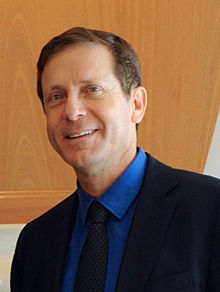The country has not elected a Labor government since 1998.
 Jerusalem, January 11 – Physicians have confirmed that Labor Party and Opposition leader Isaac Herzog is suffering from a form of selective amnesia that only makes him forget the deadly terrorism against Israelis that occurred when his party was in power, sources close to the politician reported today.
Jerusalem, January 11 – Physicians have confirmed that Labor Party and Opposition leader Isaac Herzog is suffering from a form of selective amnesia that only makes him forget the deadly terrorism against Israelis that occurred when his party was in power, sources close to the politician reported today.
Doctors at Hadassah Medical Center in Jerusalem informed reporters of the diagnosis, which they say explain Herzog’s rhetoric for the last several years. “A constant refrain of Mr. Herzog is his insistence that a Labor-led government will be able to bring safety and security where Netanyahu has failed,” explained neurologist Professor Sellek Tiv. “These assertions appear to be made in complete ignorance of the thousands of Israelis who died in terrorist attacks the last two times time Labor was in power: the Peres and Barak governments of the late nineties and early 2000’s, in contrast to the much lower casualty figure of Bibi’s four terms to date.”
In the years immediately following the Oslo Accords of 1994 that gave the Palestinians limited self-rule, militant Palestinian factions embarked on a terrorism spree that saw suicide bombing first used as a frequent tactic against Israeli civilians. Calm prevailed for most of Netanyahu’s first term in 1996-98, but he lost to Ehud Barak, under whose watch the Second Intifada broke out, a Palestinian campaign of bombings, shootings, and other attacks that ultimately left more than a thousand Israelis dead. The country has not elected a Labor government since then.
Professor Tiv said the amnesia is not life-threatening, unless the electorate does the unexpected and votes Herzog into power. If that happens, say the neurologists, countless Israeli lives are at risk. “While he’s spouting rhetoric from the Opposition only staunch opponents of the Right will take him seriously, and that’s not enough to matter for the time being,” he said. “If elections become a serious possibility, we will have to revise the prognosis accordingly.”
For now, say experts, there is little available treatment for the ailment, but that should be of minimal concern. “It doesn’t seem to bother the patient too much, nor those closest to him, so the wisest course of action from a medical standpoint is just to leave things alone,” said neurologist Rye Twinger of Columbia-Presbyterian Medical Center in New York. “As far as I can tell even Mr. Herzog’s opponents in Likud aren’t demanding he step down or anything. They must also be comfortable with the situation, probably because it presents no threat to them.”




